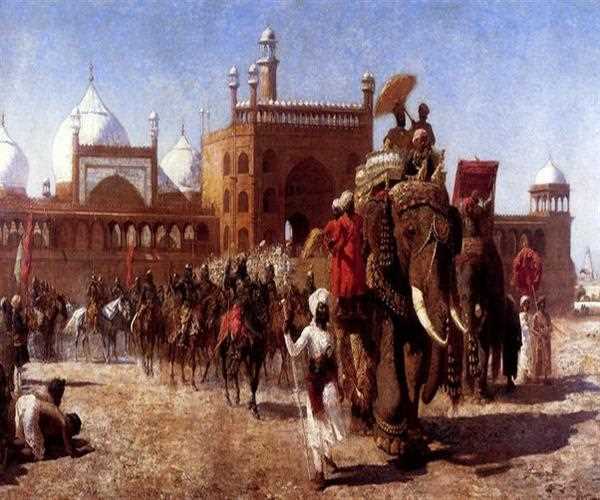The Mughal Empire was one of the largest and most powerful empires in history, and it conquered a vast swath of territory in India in a relatively short period of time. There were a number of factors that contributed to the Mughals' success, including:

- A formidable military force. The Mughals had a well-trained and well-equipped military force that was equipped with advanced weaponry, including firearms and artillery. This gave them a significant advantage over their opponents, who were often still using traditional weapons.
- Effective military strategies. The Mughals were skilled military commanders who were able to use their forces to great effect. They were particularly adept at using cavalry and artillery to their advantage.
- Political fragmentation. The Indian subcontinent was fragmented at the time of the Mughal invasion, with many small kingdoms and principalities. This made it difficult for the Mughals' opponents to unite against them.
- Religious tolerance. The Mughals adopted a policy of religious tolerance, which helped to win over the support of many Hindus and other non-Muslims. This made it easier for the Mughals to govern their vast empire.
- Effective administration. The Mughals were skilled administrators who were able to establish a efficient and effective system of government. This helped to consolidate their power and ensure the stability of their empire.
In addition to these factors, the Mughals also benefited from the fact that they were able to learn from the mistakes of their predecessors. The Delhi Sultanate, which had ruled much of India before the Mughals, had been weakened by internal divisions and conflicts. The Mughals were able to avoid these mistakes and establish a more stable and prosperous empire.
As a result of these factors, the Mughals were able to conquer India in a relatively short period of time. They established an empire that lasted for over 200 years and left a lasting legacy on Indian history and culture.
Why didn't the Mughals conquer all of India?
The Mughals did not conquer all of India for a number of reasons. Some parts of India, such as the south, were more resistant to Mughal rule. The Mughals also faced challenges from other invaders, such as the Portuguese and the Marathas. In addition, the Mughal Empire began to decline in the 18th century, which made it difficult for them to maintain control of their vast territory.
Despite these challenges, the Mughal Empire was one of the most powerful and influential empires in history. Their legacy can still be seen today in the architecture, art, and culture of India.